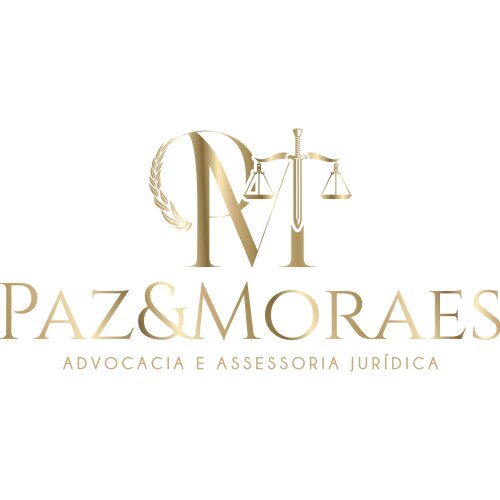Best Constitutional Law Lawyers in Brazil
Share your needs with us, get contacted by law firms.
Free. Takes 2 min.
Or refine your search by selecting a city:
List of the best lawyers in Brazil

About Constitutional Law in Brazil
Constitutional Law in Brazil is primarily governed by the Brazilian Federal Constitution, which was enacted on October 5, 1988. This Constitution is the supreme law of the land and establishes the fundamental principles and organization of the Brazilian government. It outlines the rights and duties of citizens and includes provisions related to the separation of powers, federalism, and individual liberties. The Constitution has undergone numerous amendments to address evolving political, social, and economic conditions in Brazil.
In addition to the Federal Constitution, there are State Constitutions that govern in tandem, as Brazil is a federative republic composed of 26 states and the Federal District. These constitutions must align with the federal one but can offer additional rights and regulations specific to each state.
Why You May Need a Lawyer
There are several reasons why individuals may need legal assistance in Constitutional Law in Brazil. These can include:
- Challenges to laws or governmental actions that may violate constitutional rights.
- Issues related to freedom of speech, religion, and other individual liberties guaranteed by the Constitution.
- Disputes involving the separation of powers among the executive, legislative, and judicial branches.
- Cases involving electoral processes, political rights, and representation.
- Protection against discrimination and ensuring equal treatment under the law.
- Matters concerning the constitutionality of legislation or administrative acts.
In such cases, consulting with a lawyer who specializes in Constitutional Law can provide essential guidance and representation.
Local Laws Overview
While the Brazilian Federal Constitution is the overarching legal framework, there are several local laws and principles particularly relevant to Constitutional Law:
- Principle of Legality: No one can be compelled to do or refrain from doing something except by virtue of law.
- Due Process of Law: Guarantees fair treatment through the normal judicial system, especially as a citizen's entitlement.
- Habeas Corpus: A crucial legal tool for protecting individual freedom against unlawful detention.
- Amparo Proceedings: A legal remedy for the protection of constitutional rights when they are violated or threatened by authority.
- Social Rights: The Constitution guarantees rights to health, education, labor, and housing, placing obligations on the state to fulfill them.
Frequently Asked Questions
What is the role of the Brazilian Constitutional Court?
The Brazilian Supreme Federal Court (STF) is the highest court in Brazil, and one of its primary functions is to oversee the constitutionality of legislative and executive actions.
How does the Brazilian Constitution protect human rights?
The Constitution includes a broad array of rights including freedom of speech, religion, equal protection, and social rights, which are enforceable through various legal remedies.
Can Brazilian laws conflict with the Constitution?
Laws must conform to the Constitution. In cases of conflict, the unconstitutional law can be nullified by the judiciary, primarily through decisions of the STF.
What is the principle of federalism in Brazil?
Brazil is a federative republic, meaning power is divided between the federal government and the states, each with its own legislative, executive, and judicial branches.
How often is the Brazilian Constitution amended?
The 1988 Constitution has been amended multiple times to address various legal and social issues. Amendments require a rigorous legislative process and broad political consensus.
What are some examples of fundamental rights in the Brazilian Constitution?
Fundamental rights include the right to life, freedom of expression, education, and healthcare, as well as rights to privacy and environmental protection.
How does the separation of powers work in Brazil?
The Constitution mandates three independent branches: the executive, the legislative, and the judiciary, each with separate functions and powers.
What can I do if a law violates my constitutional rights?
You can challenge the constitutionality of the law in court. A lawyer specializing in Constitutional Law will be able to provide guidance and representation.
Are state laws subject to constitutional scrutiny?
Yes, state laws must not contravene the Federal Constitution, and are subject to judicial review if challenged.
What is the significance of social rights in the Constitution?
Social rights are designed to ensure a minimum standard of living for all citizens, mandating state action to provide services like education, healthcare, and welfare.
Additional Resources
- Supreme Federal Court (STF): The primary body for constitutional interpretation and enforcement.
- Public Defender's Office: Provides legal assistance and representation for those unable to afford it.
- National Congress Library: A resource for accessing legal documents, including the Federal Constitution and its amendments.
- Brazilian Bar Association (OAB): Offers resources and guidance for legal practitioners and the public on constitutional issues.
Next Steps
If you need legal assistance in Constitutional Law, consider the following actions:
- Identify and reach out to a lawyer specializing in Constitutional Law. They can help assess your situation and provide expert advice.
- Contact the Public Defender’s Office if you require support and cannot afford private legal services.
- Gather all necessary documentation pertaining to your case, including any correspondence, legal documents, and evidence related to your constitutional rights issue.
- Stay informed and educated on your rights and potential legal processes by utilizing resources from reputable legal bodies and organizations like the OAB.
These steps will prepare you for obtaining the necessary legal support and understanding your rights under Brazilian Constitutional Law.
Lawzana helps you find the best lawyers and law firms in Brazil through a curated and pre-screened list of qualified legal professionals. Our platform offers rankings and detailed profiles of attorneys and law firms, allowing you to compare based on practice areas, including Constitutional Law, experience, and client feedback.
Each profile includes a description of the firm's areas of practice, client reviews, team members and partners, year of establishment, spoken languages, office locations, contact information, social media presence, and any published articles or resources. Most firms on our platform speak English and are experienced in both local and international legal matters.
Get a quote from top-rated law firms in Brazil — quickly, securely, and without unnecessary hassle.
Disclaimer:
The information provided on this page is for general informational purposes only and does not constitute legal advice. While we strive to ensure the accuracy and relevance of the content, legal information may change over time, and interpretations of the law can vary. You should always consult with a qualified legal professional for advice specific to your situation.
We disclaim all liability for actions taken or not taken based on the content of this page. If you believe any information is incorrect or outdated, please contact us, and we will review and update it where appropriate.
Browse constitutional law law firms by city in Brazil
Refine your search by selecting a city.












